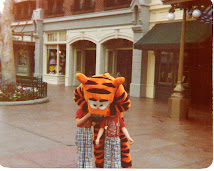I'm a comic book fan. I have been for the last twenty years. Sure, as I kid I read the occaisional Superman or Spiderman comic. In junior high, though, through the encouragement of my best friend and the local comic book club, I soon discovered the plethora of titles from Teenage Mutant Ninja Turtles to Fantastic Four. I still have my almost complete collection of Marvel trading cards from 1990. My entry into the comic world came in 1987, two years after the massive Crisis on Infinite Earths, and one year after the relaunch of Superman, and "darkening" of comic themes in Batman: The Dark Knight Returns and Watchmen. The next few years were seminal, with the death of Robin (Jason Todd), the rise of superstar artists such as Todd Macfarlane, the creation of Image Comics and the publication of Wizard Magazine, the Death of Superman and Knightfall storylines, the boom of the speculator market, and the rise of independent publishers.
By the mid 90's, the industry seemed to reach it's zenith, with everything from the whimsey and fantasy of Jeff Smith's Bone to the dark themes of Neil Gaiman's Sandman creating fan frenzy and mainstream appeal. Somehow, amidst all the success of the early 90's, everything seemed to fall over a precipice and the publishers began to reach for straws. Marvel declared bankruptcy. Superman turned into an electric blue entity. Spiderman was no longer Peter Parker, but a clone named Ben Reilly (or was he?). Captain America and the Fantastic Four dissappeared from Marvel continuity for a time. Hal Jordan fell from being the heroic Green Lantern to the cosmic villain Parrallax, before finally becoming the vengeful Specter.
Creators and publishers were reaching for any sensational idea that might win back readers. One comment I often hear is that creators want to find new avenues and ideas that will both push the envelope but allow the character to retain their staus quo. For perhaps the first time in the medium's history the base of readers has been the same for at least the last 10-15 years. The fans have grown up with these books and characters, and rather than move on to other forms of literature, they continue to follow the stories. They want to see their favorite characters grow with them, yet they raise a call to arms should the precious status quo be affected.
I believe that publishers and editors have heard the complaints and have taken steps over the last few years to find ways to allow their characters to grow, yet maintain the core of the character. For example, shortly after the Spider-Clone saga (see Ben Reilly above), Marvel hired filmmaker Kevin Smith to write an arc of Daredevil. That storyline led to the highest readership and sales numbers the book had seen in years. Smith parlayed his success with the ressurrection of DC's dead hero Green Arrow, who wasn't a top tier character even before his death. Others took notice of what Smith had accomplished and began to look outside the industry for talent. Since 2000, Hollywood creators, such as J. Michael Straczynski and Joss Whedon have made their mark on comics. Novelists Greg Rucka and Brad Meltzer and independent creators like Brian Michael Bendis have brought new insights and situations to comics that might not otherwise have been considered. Even author Stephen King is bringing his Dark Tower saga to the comic page. Artists like Alex Ross have their pick of projects, from a post-history of both the DC and Marvel characters in Kingdom Come and Earth X. The medium is again at a high point. The past few years have seen a resurgence in storytelling that keeps getting better each year. Today's creators are now looking to use continuity to create stories the fans can enjoy. Hal Jordan is again the heroic Green Lantern. 2004's Identity Crisis took situations from 30 years ago and made them relevant to today's audience. DC's current mega-crossover Infinite Crisis is attempting to make all of DC's continuity, including pre-Crisis, relevant and understandable. Even Marvel is looking to their past. I think it really began with Origin, which delivered on it's promise, to give fans the unkown history of Wolverine, which is currently affecting the character. The Ultimate line takes well known characters and storylines from 40 years ago and has updated them for a new, younger audience. Last year's House of M and Winter Soldier storylines took events from the past and turned heroes into villains. Sure, there are some complaints, but the stories are good, and we keep buying. It's a good time to be a comic book fan.
Disney Eats: New 2026 Sweets and Treats Coming to Disneyland
-
Happy New Year, my fellow foodies! We had tons of delicious tastes in 2025
and based on this list I’m about to share with you, 2026 is going to be no
dif...
9 hours ago























.jpg)





















